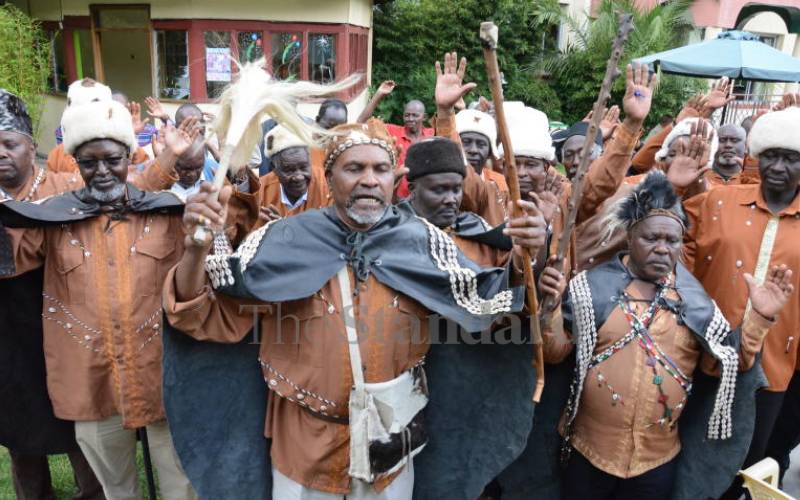×
The Standard e-Paper
Smart Minds Choose Us

Elders holding prayers at Club Heritage, Naivasha. [Antony Gitonga, Standard]
As 2022 elections' talk starts dominating the headlines, a question on everyone's lips is: who will become the kingpin for the Mount Kenya region after President Uhuru Kenyatta exits the scene?